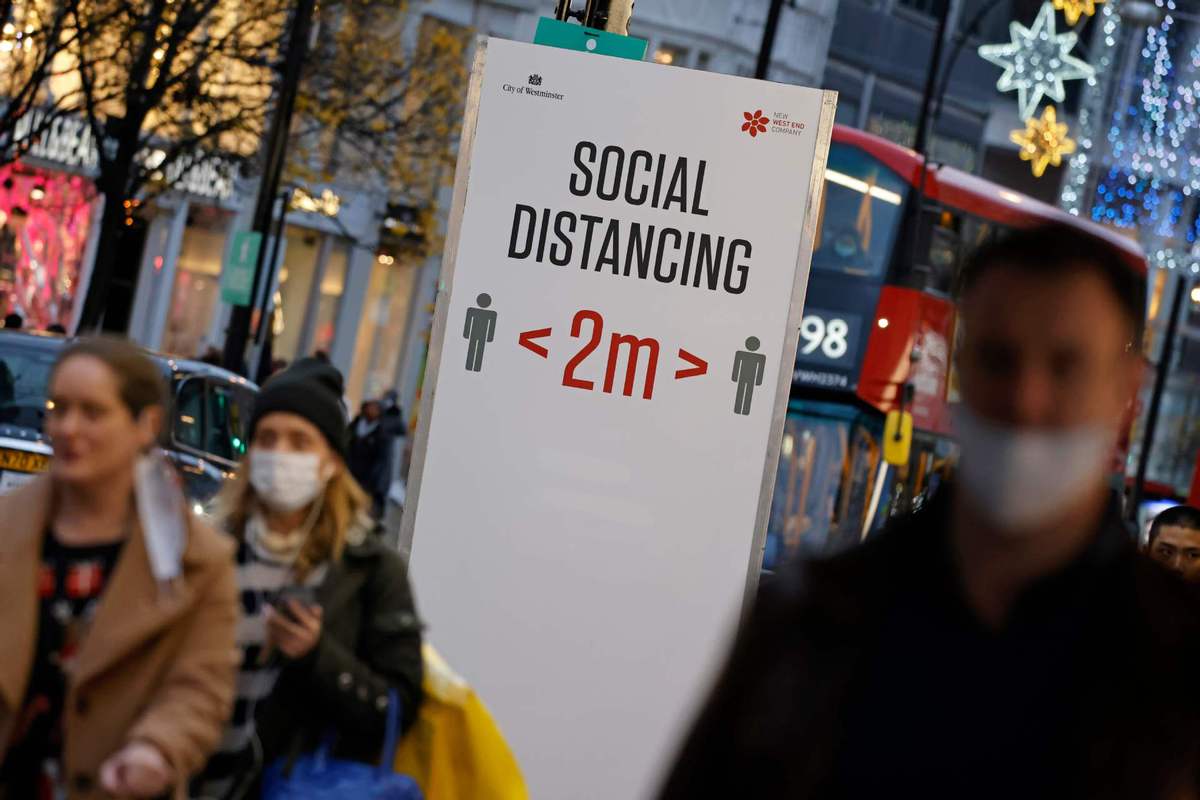London braced for harsh controls as virus rates surge in the capital


Health officials in the United Kingdom have told the government that the infection rate of the novel coronavirus in London is moving toward "exponential growth", and reports suggest the capital could be moved into the highest level Tier 3 status of restrictions imminently.
The nation's health secretary Matt Hancock was expected to give a statement to the House of Commons later on Monday with deep concern in government about the sharp rise in cases, according to the BBC and ITV News.
The top level of restrictions would mean tighter curbs on socializing, hospitality and business in the run up to the Christmas holiday period.
Members of Parliament were warned on Monday morning that there was "significant pressure" on the National Health Service, which is estimated to be at 94 percent critical care capacity in London, with the latest data showing rates are rising in all parts of the capital.
MPs were told that the surge in cases has mostly come from those aged between 16 and 29.
ITV News reported that Mayor of London Sadiq Khan has told the Prime Minister Boris Johnson that "urgent consideration must… be given to closing secondary schools, sixth form and further education colleges a few days early and keeping them closed for longer after Christmas".
William Russell, Lord Mayor of the City of London, which is the capital's finance district, has admitted that food and drink businesses in the area face "tough "months ahead, but is making plans for their revival in the spring.
He said he does not expect many office workers to return before that time, when it is hoped that vaccines will have countered the pandemic to some extent.
"January and February will be tough," he told the Financial Times. "We have to survive those couple of months and hopefully come back with a bang in spring time. I want everyone to buy in on this reopening," he said.
Russell said he believes "the office is not dead" even if there is "a huge change coming" in how people work. "In February we had over 500,000 people coming into the Square Mile every day and that is going to take a long time to get back to," he said. Concern around the pandemic has increased the sales of underground bunkers and survival equipment, Sky News reported.
More UK residents have been turning to survival kit suppliers that serve "preppers", or those who prepare for worst-case scenarios.
Justin Jones, sales director of UK Prepping Shop, said sales have spiked 487 percent in the last three months.
"I don't think people expected there to be empty shops," he said. "It's always been laughed at when preppers have talked about this in the past. It came true and now we've got a nation of preppers."
Michael Mills, a prepping expert and criminology lecturer at the University of Kent, said the rise of the movement is down to a "declining faith in institutions".
He said: "Making sure that the individual or a small group can sustain themselves seems to be a bankable idea and bedrock of security in a world in which other sources of security seem to be on the way out or absent."
Meanwhile, the Financial Times reported that the UK government is planning a new state-backed program to support lending by banks to small to medium-sized businesses. It would be a permanent replacement for the existing 65 billion pound ($86 billion) COVID-19 loans program, and will be broader in its scope.
In the spring, Chancellor of the Exchequer Rishi Sunak launched loan initiatives to support companies hit by the pandemic lockdown. These were originally due to end in September but have already been extended until the end of January.
The new program is expected to offer loans ranging from thousands of pounds to as much as 10 million pounds.
Elsewhere, the economy in France is projected to rebound next year, though more slowly than previously expected, according to the central bank quarterly forecast released on Monday.
The eurozone's second biggest economy will grow around 5 percent in 2021, the Bank of France predicts. It would reach its prepandemic level of output only by mid-2022 after shrinking 9 percent this year, the forecast said.
It anticipates that widespread vaccination will not be achieved before the end of 2021. The nation's recovery was hit by a second wave of the coronavirus that pushed authorities to reintroduce restrictions on movement and the closure of some businesses in October.
































